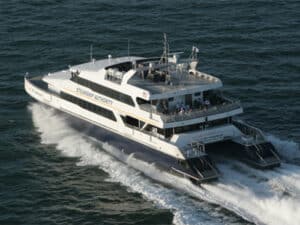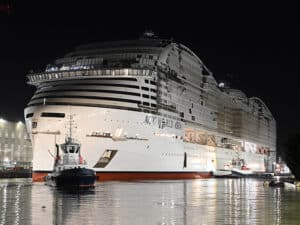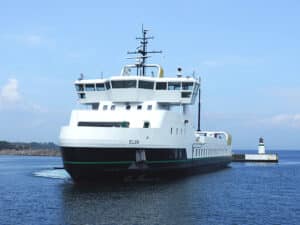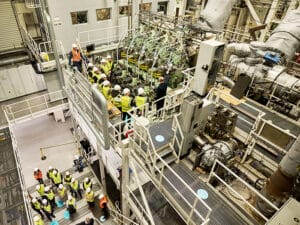
Op-Ed: AI and ports—Are you protected?
Written by Heather Ervin
Ed McNamara
By Ed McNamara, CEO of Cleveland-based port insurance broker Armada Risk Partners
Artificial Intelligence (AI) is the new frontier in port operations, revolutionizing work in areas ranging from vessel traffic management and automated container handling to predictive maintenance.
The possibilities appear endless as technology moves on at an ever-increasing rate of knots. However, as AI systems take on and transform ever more critical operational roles, they also introduce new liability and risk management challenges that must be addressed by port operators.
The first thing to consider is that most current liability frameworks have not been built for AI decision-making. If things go wrong key legal issues to be faced include attribution of fault. Who made the decision: human or machine? AI decisions can also be opaque, making it hard to prove negligence.
And many insurance policies exclude losses from software failure or may require proof of a system breach. That makes it even more critical to always work closely with your insurance broker to evaluate exclusions in your policy.
In the wake of the growing ways that AI can be used operationally, what can port operators and owners do to protect themselves if things do go wrong?
Undergoing a detailed risk assessment before the deployment of AI is a good starting point. At Armada we would recommend a full risk and failure mode analysis before taking the decision to go live with the tech. Simulate scenarios involving malfunction or misjudgment.
Take the scenario that an AI-controlled crane misinterprets data and drops a container, injuring a worker or damaging cargo. Just who is responsible?
Well, the fact is the port operator is most likely to be held liable under strict or vicarious liability, even if it was AI that was at fault.
While other parties, such as the AI vendor, crane manufacturer, or maintenance contractors could share liability, proving their fault will be extremely difficult as a result of technical complexity and legal disclaimers.
And as a result, it will be hard to shift responsibility away from the operator, even when the issue stems from the AI system.
Other issues that Armada suggest you consider when undertaking AI risk assessments include environmental liability, if hazardous materials are involved in an incident.
There are some protections you can put in place to try and prevent incidents occurring. Maintain a human-in-the-loop model, especially for critical or hazardous operations and look to train your personnel to recognize and override unsafe AI behavior.
If the worst happens and in the event of an incident involving AI, port operators should have a detailed response plan ready to put in place, one which includes insurance considerations and has a claims-handling protocol, along with a post-loss action plan.
Create specific procedures for AI-involved incidents – both for emergency management and legal documentation.
There are also contractual protections that need to be considered as the adoption of AI gains more momentum.
Look for indemnity clauses in vendor contracts, holding AI developers accountable for software errors or design flaws. Check out what warranties there are related to the safety and performance of AI products.
And importantly, examine contracts to ensure that they do not require waivers of subrogation, which mean that the insurer gives up its right to pursue a claim against a third party for a loss suffered by the insured. You should also thoroughly check your policy for subrogation protocols.
Armada would suggest this is also the time to undertake an insurance coverage review, working closely with your broker, to ensure that you are as covered for an eventuality as you can be.
Port and terminal operators should regularly review their insurance coverage to ensure that it is still adequate.
That review should include evaluating technology Errors & Omissions (E&O) and Cyber Insurance policies. Just how covered are you?
Some underwriters are beginning to offer AI-specific endorsements to meet the demands of the changing tech landscape.
If your policy does not have AI specific endorsement, discuss with your broker and your carrier to see how a claim like this would be handled. Would it be covered? Is it excluded through vicarious wording? Be prepared.




